Practice Policies
What and Why - Online Therapy?
Everyone is deserving of mental health support. NorthWest Ontario Counselling & Consulting provides online therapy and virtual services from registered therapists.
Online therapy services offer a more convenient way to access counselling. Clients can communicate with a therapist from the comfort of their own home using a computer or a mobile device. Sessions are completed via telephone or video chat, taking place on a safe, secure and private platform. NWOCC uses “Jane App – Practice Management Software” (JANE) for all online booking, scheduling, billing, charting, and video therapy sessions. JANE is fully HIPAA, PIPEDA, and GDPR-compliant.
We aim to take away as many barriers as we can from accessing the required support you may need, with online therapy being more accessible for people with mobility issues, transportation problems, or any other issue which may prevent you from accessing in-person counselling. Additionally, online counselling can be more cost-effective and can provide greater flexibility in terms of scheduling.
Intake Policy
Once you contact NWOCC, it is our intention to follow-up within a timely manner. Please note, you are able to leave a brief message with your name, contact information, and reason for seeking counselling. If you are calling from a shared device, you must ensure you give verbal consent for NWOCC to call you back at your listed number. Feel free to send NWOCC an initial email if you prefer.
It is our best practice to follow-up with potential clients within 48 (business) hours. After an initial consultation is completed, clients wanting to engage in psychotherapy with NWOCC will be emailed a link to set up their JANE account. Shortly after, clients will receive electronic Intake and Consent Forms to be completed independently prior to their first scheduled session.
Scheduling
To promote growth and therapeutic gains, consistency is required. With this, we strongly encourage pre-booking your sessions for the same day and time on a weekly, bi-weekly, or monthly appointment schedule. This will ensure your space is secured, and that we have the capacity to support you. If at any point your preferred spot is no longer available, please add your name to our wait-list – and we can often accommodate these requests.


Confidentiality
Your confidentiality is of the utmost importance. Everything we discuss in session is confidential and nothing is shared with anyone without your knowledge and written consent.
There are strict limits to confidentiality, meaning situations that might arise where therapists are required to breach confidentiality. These circumstances include:
- If you share information about a child being abused, harmed, and/or neglected (including exposure to any physical, verbal, or emotional abuse), or a child is at risk of any of the above, your therapist is obligated to make a report to a child protection agency.
- If you share information about an elderly person or adult with developmental disabilities who is being abused or neglected, your therapist is obligated to make a report to the Ministry of Health and Long-Term Care Director.
- If your therapist believes you pose a legitimate, serious, and imminent threat to your own life or the lives of others, they are obligated to take steps to ensure your safety and the safety of others. This may involve breaching confidentiality, for example by contacting medical or law enforcement professionals.
- If the files of NWOCC are subpoenaed by a court of law, your therapist is legally required to provide this information.
- If there is a medical emergency, your therapist will involve appropriate emergency services for assistance.
- If you share information that would lead your therapist to believe a registered healthcare worker has sexually abused you or another client, your therapist has a duty to report them to their respective governing body.
Should a situation arise where your therapist must break confidentiality, the practice of NWOCC is to inform you and involve you in the process unless doing so poses a risk of further harm.
Please note, Brady Heyens (RP #008786) and Kaylee Heyens-McMahon (RP #008731) are the owners of NWOCC and as such are the Health Information Custodians, as per the Personal Health Information and Protection Act (PHIPA). Within this role, Brady Heyens and Kaylee Heyens-McMahon can access your identifying information as well as clinical notes within your chart but abide by strict confidentiality guidelines in accordance with the Personal Health Information Protection Act, clearly outlined in NWOCC’s Virtual Health Care Policy. For access to the Virtual Health Care Policy, please email us your request.
NWOCC operates as a group practice with a shared computer-based platform (JANE) in which other healthcare team members may have access to the following personal health information: your name, address, date of birth, phone number, email address, and emergency contact information. However, they will have no access to information shared during sessions and they abide by confidentiality guidelines in accordance with the Personal Health Information Protection Act, clearly outlined in NWOCC’s Virtual Health Care Policy.
All employees of JANE and any other contractors retained by NWOCC are governed by the confidentiality laws of PHIPA.
Your Records
We keep written records of all counselling sessions. Records will be stored with NWOCC for 10 years. You have the right to request copies of these records via written request at any time, at which point we will schedule an appointment to discuss the request and potentially review the records. You have the right to request (in writing) an amendment to the information in your record if you feel it is incomplete or inaccurate.
Your Rights
You have the right to ask questions, provide feedback to your therapist about the counselling process and know therapists’ qualifications; you have the right to end counselling at any time; you have the right to a safe and secure environment; you have the right to ask about and discuss the policies of NWOCC; you have the right to make a complaint about your therapist/NWOCC/the services to the College of Registered Psychotherapists (complaints@crpo.ca/phone # 416-479-4330). You can find a video, steps, and additional information regarding complaints at https://www.crpo.ca/filing-a-complaint-about-a-member/.
Payment
Sessions are 50 minutes in length and the cost for each session will be agreed upon before proceeding with therapy. Regardless of the clients’ form of payment, all clients must have a valid credit card on their JANE account to prevent any payment issues from occurring that could interrupt the therapeutic process or therapeutic alliance. Those choosing to pay by e-transfer will not have their credit card charged unless payment is not received 48 hours after the appointment. Services will not be permitted to continue if there is an outstanding balance on your account. In this event, any session bookings will be cancelled until the outstanding balance is paid in full.
While many extended health insurance plans cover mental health services, others do not. As such, NWOCC does not bill insurance companies directly. It is your responsibility to check with your insurance provider in advance to determine your eligibility for coverage of a Registered Psychotherapist.
Cancellation Policy
While we appreciate the unpredictability of life, we have a responsibility to protect our current clients, our wait-list clients, and our therapists’ time.
Your session time is reserved just for you. A late cancellation or missed visit leaves a hole in your therapist’s day that could have been filled by another client. As such, we require 48 hours’ notice for any cancellations or changes to your session. Clients who provide less than 48 hours’ notice, or miss their session, will be charged for the full cost of the session. In the event of a no-show or a cancellation with less than 48 hours’ notice, your credit card on file will be charged.


Conflict of Interest Policy
Due to the context of rural practices, it is recognized that Psychotherapists may be part of many relationships that have both personal and professional interests. NWOCC recognizes that it is difficult to avoid knowing or having past knowledge of our clients, and vice versa, when living and practicing in the Rainy River District. Therefore, it is the therapist’s responsibility to use discretion and their own clinical judgment before accepting a new client or continuing work with a current client if a conflict of interest should arise. In all situations, it is advised that the therapist err on the side of caution and seek consultation when it comes to potential conflicts of interest. It is the client’s responsibility to share with their therapist if they are uncomfortable working with that individual due to a potential conflict of interest.
Not all conflicts-of-interest are of equal concern. Some situations may be very serious and must be avoided entirely, such as a dual intimate relationship. Dual intimate relationships are defined as behaviour between employee/consumer that has an explicit sexual nature, sexualized context, or non-sexual closeness that may compromise the fulfilment of professional responsibilities. Consumers are defined as clients of our service. There are other situations where a conflict of interest may develop, but is unavoidable, or not in the best interest of the client to avoid. These situations must be managed carefully.
Electronic Communication
NWOCC uses email communication for basic check-ins between sessions, and for administrative purposes only. As our email communication is only monitored on a part time basis, we are unable to guarantee a prompt response at times. Further, it is important to note that due to the nature of digital technology, the security and privacy of email or text communication cannot be guaranteed.
Email or text messaging is not an appropriate method of communication for sensitive or detailed personal matters, and you are discouraged from sending emails or texts of this nature. Please contact NWOCC and/or your therapist by phone to arrange a telephone or virtual consultation or an additional therapy session if you have sensitive information to share that cannot wait until your next appointment.
Withdrawal of Consent
You have the right to withdraw your consent at any time. NWOCC therapists are obligated by the Personal Health Information and Protection Act (PHIPA) to document the withdrawal and the reason for the change within your NWOCC chart.
Virtual Counselling Requirements
Although NWOCC makes all attempts to establish and retain a secure connection both, online and via telephone, it is at times not possible to guarantee 100% protection of the confidentiality of virtual communication. Given that virtual therapy means that client and counselor are not physically located in the same place, an extra step to ensure client safety is required. Specifically, you will be required to provide the physical address of your location at the beginning of each session. This information would only be released in the case of bodily harm to yourself, or another person being threatened.
Please make arrangements to be in a room alone, with a closed door, for your virtual therapy appointment. It is essential that you feel comfortable and are not interrupted during your session. You can expect your NWOCC therapist to be alone in a room free from distractions in order to provide you with their full attention.
Therapy services take place on a virtual, secure video platform (JANE) or via telephone. As such, it is the clients’ responsibility to ensure they have sufficient internet connection, cell phone service, battery power and audio/video capabilities to engage in online or telephone counselling. Additionally, it is the clients’ responsibility to ensure they have a backup method of communication in the event of power failure, loss of internet connection or other unforeseen events (i.e., second computer and/or cell phone to complete session). Any sessions that are prematurely terminated due to fault in the client’s devices, cell phone service or internet services will not be refunded and must be paid in full.
Your NWOCC therapist will attend sessions with sufficient internet connection, cell phone service, battery power and audio/video capabilities to engage in virtual or telephone counselling. Additionally, your therapist will be prepared with alternate means of communication in the event that a session is dropped, or a device fails.
Client Accounts and Termination
NWOCC values collaboration and engagement and will always do the best to work with you to meet your needs, and reach your goals. If you have been inactive for 60 days or more, clients will be notified via email. If NWOCC still does not hear back, your status will be set to “discharged” in the system to make space for new clients. This does not apply in cases where clients and therapists have already set up an alternative schedule.
If clients wish to resume counselling or psychotherapy services following their discharge, they will need to complete an updated consent form and intake form prior to resuming regular sessions. At this point, sessions will be subject to any updates or changes in fees. This is an important part of our best practices and privacy protocols.


Risks, Benefits & Alternatives
As with any form of treatment, therapy comes with potential risks and potential benefits, neither of which are guaranteed. Through therapy, clients learn more about themselves and sometimes, these can be things that they do not like. There may be a chance that during or after a session, the client may feel emotionally or physically distressed. The process of therapy may cause you to experience uncomfortable or painful feelings such as sadness, guilt, anxiety, anger, or frustration. Counselling may bring up painful memories or might disrupt relationships. A successful therapeutic process shall depend both on the efforts of the therapist and the client. We understand that therapy can be challenging especially for those who are not willing to open up. Uncomfortable feelings are normal and are part of the process. Therapy can help in making one open their awareness. Clients may develop healthier forms of coping while addressing their problems and achieving their goals. Other advantages could include reduced stress or increased stress management skills, improved communication, improved relationships, improved emotional regulation skills, among many others, based on the clients’ unique goals. There is no firm timeline for this progress. Based on their knowledge of the potential risks and advantages of therapy, should clients feel uncomfortable moving forward, clients can opt to pursue alternate means of support such as consulting with their general practitioner for other recommendations.
Crisis Support
We do not provide emergency and/or crisis
services. If you are in a crisis, please access the crisis and emergency
resources in Ontario, or call 911.
Canada Suicide Prevention Service:
1-833-456-4566 or text: 45645 (Accessible 24/7)
Kenora-Rainy River District Crisis Response:
1-866-888-8988
For an extensive Resource List, please click here

